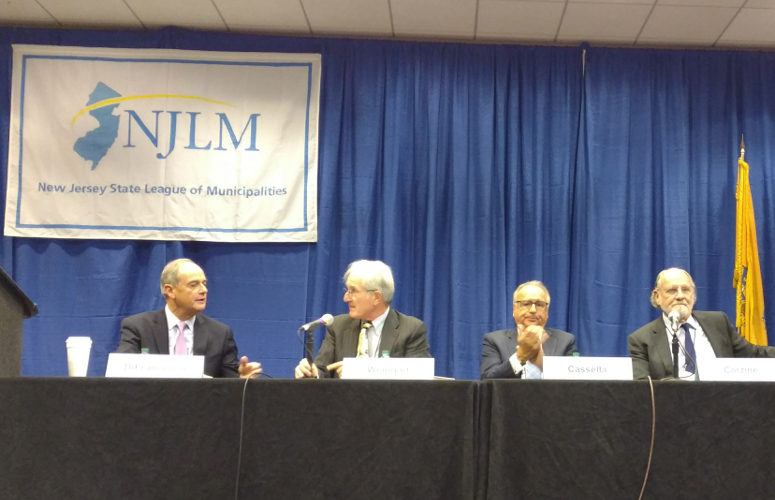
Gov. Murphy Forms Task Force to Examine Deficiencies of New Jersey’s Tax Incentive Programs
On Jan 24, 2019Following the release of the State Comptroller’s audit of the Economic Development Authority’s tax incentive programs that claimed deficiencies in monitoring and oversight, Gov. Phil Murphy today signed an executive order creating a Task Force on EDA’s Tax Incentives. The Task Force’s mission will be to further explore the findings of the Comptroller’s audit and provide the public with a full accounting of how and why basic controls were lacking in a program that left New Jersey taxpayers on the hook for up to $11 billion.
“The audit released earlier this month unfortunately validated my long-standing concerns that New Jersey’s tax incentive programs gave out billions of dollars in tax breaks but failed to deliver the promised economic benefits,” said Governor Murphy. “The idea that up to $11 billion was awarded without so much as basic verification of claims regarding job creation and retention should shock and appall every New Jersey taxpayer. I am pleased that, under new leadership, the EDA is putting policies in place to ensure compliance with the terms of tax incentive awards, but taxpayers deserve a full explanation of how and why these massive shortcomings in performance existed. The Task Force I am establishing today will give the public that explanation, and help provide a roadmap for how tax incentives can be responsibly designed and implemented going forward.”
The Task Force will be chaired by Ronald K. Chen, former New Jersey Public Advocate and Dean of Rutgers School of Law-Newark. The Governor has the authority to appoint additional members to the Task Force as deemed appropriate, and the Task Force will receive legal counsel from Walden Macht & Haran LLP, a leading law firm in white-collar litigation and government investigations. The team at Walden Macht & Haran LLP will be led by Jim Walden, former Assistant U.S. Attorney for the Eastern District of New York, Milton L. Williams, former co-chair of the Moreland Commission created to investigate public corruption, and Georgia K. Winston, whose practice focuses on white collar criminal and regulatory matters and complex commercial litigation. Additionally, the Task Force will be assisted by Pablo Quiñones, an expert in corporate legal compliance who previously served as an Assistant U.S. Attorney for the Southern District of New York and as a Deputy Chief of the Fraud Section of the U.S. Department of Justice.
The Task Force is to hold public hearings. If necessary, it may refer matters to the State Comptroller to exercise its subpoena authority, or to the EDA to exercise its authority under the terms of the incentive programs and grants.
According to Michele Siekerka, Esq., president and CEO of the New Jersey Business & Industry Association (NJBIA), “State tax incentive programs for businesses of all sizes should be an important part of our overall economic strategy to make New Jersey competitive and affordable. That said, NJBIA has always supported transparency and sufficient monitoring of these programs to ensure that the state is getting the most back for its investments.
“We believe that responsible tax incentives still play a key role in our economic development strategy and to attract and retain both our large and Main Street businesses, which need to contend with our extremely challenging business climate, high taxes and costly mandates in New Jersey.
“We do have concerns that imposing a cap for a jobs-based incentive program will strike at our regional competitiveness. We hope the state will reconsider these limitations moving forward, while administering its tax incentive programs with the appropriate and effective monitoring and oversight.”
Last week’s audit revealed deficiencies in numerous areas of EDA’s tax incentive programs. These findings include:
- Key internal controls were lacking or nonexistent for the monitoring and oversight of recipient performance.
- EDA relied only on recipient-reported data and recipient certifications with respect to job creation and retention.
- In a sample of approximately 15,000 jobs reportedly created or retained by the programs, nearly 3,000 – 1 in 5 – could not be substantiated.
- There were five commercial projects where EDA failed to comply with the applicable statute and regulations and improperly awarded $179 million in incentives.
- Numerous recipients hired employees at the end of the annual reporting period.
To access more business news, visit NJB News Now.
Related Articles:





